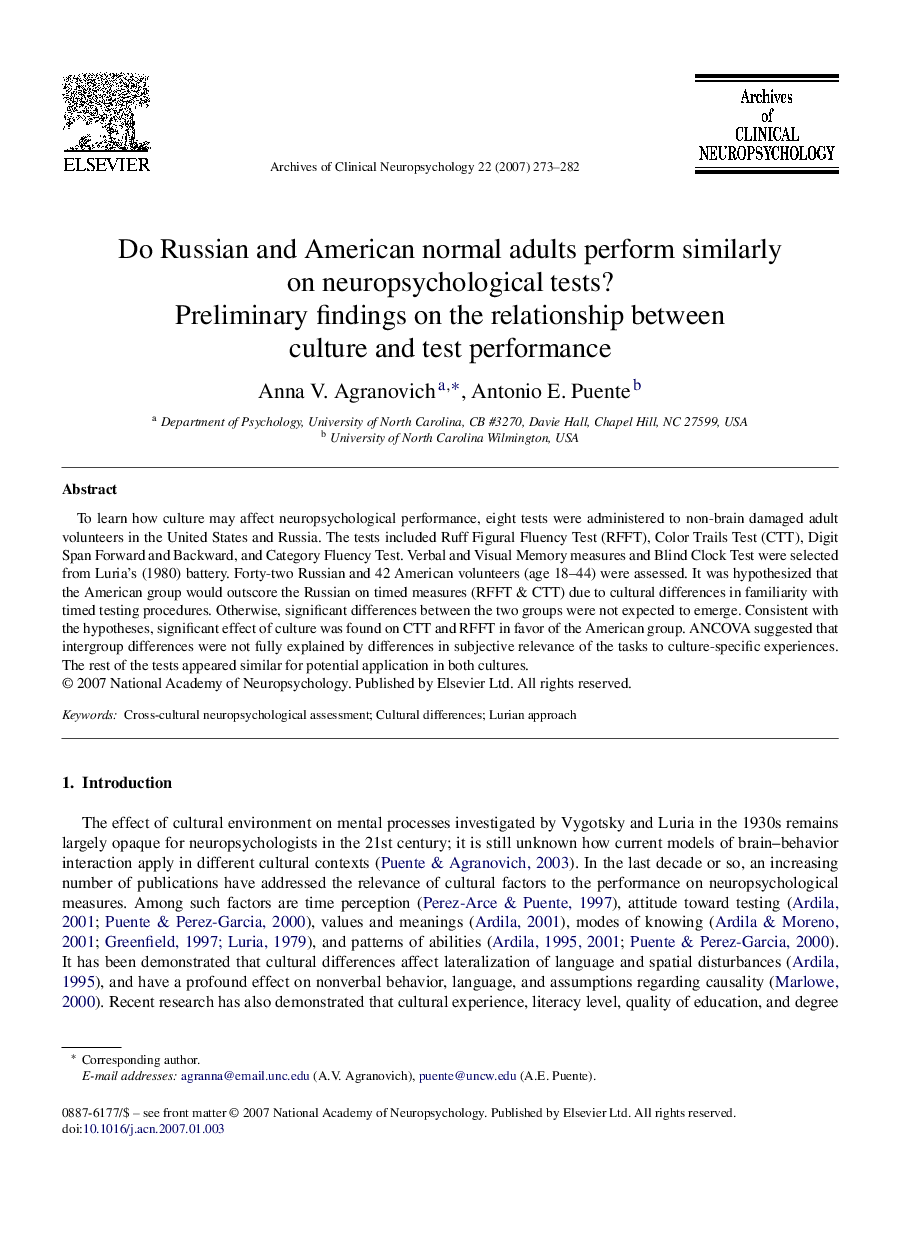| Article ID | Journal | Published Year | Pages | File Type |
|---|---|---|---|---|
| 901016 | Archives of Clinical Neuropsychology | 2007 | 10 Pages |
To learn how culture may affect neuropsychological performance, eight tests were administered to non-brain damaged adult volunteers in the United States and Russia. The tests included Ruff Figural Fluency Test (RFFT), Color Trails Test (CTT), Digit Span Forward and Backward, and Category Fluency Test. Verbal and Visual Memory measures and Blind Clock Test were selected from Luria's (1980) battery. Forty-two Russian and 42 American volunteers (age 18–44) were assessed. It was hypothesized that the American group would outscore the Russian on timed measures (RFFT & CTT) due to cultural differences in familiarity with timed testing procedures. Otherwise, significant differences between the two groups were not expected to emerge. Consistent with the hypotheses, significant effect of culture was found on CTT and RFFT in favor of the American group. ANCOVA suggested that intergroup differences were not fully explained by differences in subjective relevance of the tasks to culture-specific experiences. The rest of the tests appeared similar for potential application in both cultures.
